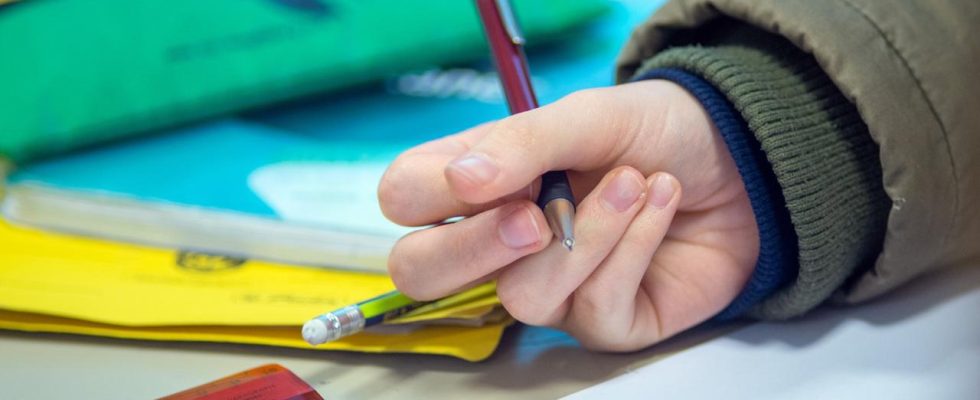No sportswear, not enough money for school trips: According to a survey of teachers by the Robert Bosch Foundation, poverty among students is increasing. A school in Heidelberg is trying to counteract this.
The children sing “Good morning everyone” and sit in a circle on the floor. Here they learn English musically; teacher Amelie Bartmann starts the day like this every morning with her class. It is a second primary school class at the Waldparkschule in Heidelberg – a community school where you can complete your secondary and secondary school leaving certificate.
Elementary school students are still a long way from teenage discussions about expensive branded clothing. And yet the separation between rich and poor is already noticeable at this age, reports Bartmann. The children often do not have the necessary work materials, and some come to school with too little or no food at all. “Then they don’t get through the day as well as the others. They can’t use their cognitive performance at all because they’re hungry.”
The reason could simply be that the parents are overwhelmed, but it could also be a lack of money. In Bartmann’s experience, poverty becomes more and more of a taboo topic for children the older they get. The signs can often not be overlooked. For example, during outdoor activities and school trips: Sometimes the clothing is not appropriate for the weather, and some children wear shoes that are far too small. All just evidence of poverty – but strong ones.
More children are worried
The study commissioned by the Robert Bosch Foundation also asked for exactly such information. In a survey of 1,032 teachers at general and vocational schools in Germany, carried out by the opinion research institute forsa.
37 percent of those surveyed said that children came to class more often than in the previous year with insufficient school materials or without sports clothing. 18 percent say that children are increasingly not taking part in school trips. 33 percent experience that children are increasingly worried about their family’s financial situation.
Such and similar indications were observed particularly frequently in special schools, comprehensive schools and secondary and secondary schools. Dagmar Wolf from the Robert Bosch Foundation is therefore calling for basic child welfare that meets needs.
But it is also important that educators have a “poverty-sensitive attitude”: “They not only have to be able to recognize the effects of poverty on children and young people, but also counteract stigmatization.”
Poverty jeopardizes school success
The Waldparkschule in Heidelberg was awarded the German School Prize in 2017 for its educational concept. They have also developed concepts for the topic of poverty. The teachers work with school social worker Anja Dorsch – among other things, to ensure that children from financially weak families have the same opportunities as everyone else. Because poverty can jeopardize school success.
“You have to imagine it like an athlete who, in addition to training and giving everything he has, also has a heavy backpack on,” explains Anja Dorsch. Anyone who carries such a heavy burden is always slower than the others. This also includes factors such as not having your own job in the family’s small apartment or a possibly unhealthy diet. “Of course we have to look at: How can we make these backpacks a little lighter?”
The shame is often great
Social worker Dorsch and the teachers offer help at school. If you don’t have pens or other work materials with you, you can borrow them at school. Officially, this offer also applies to anyone who has simply forgotten their material – a way to prevent stigmatization caused by poverty.
The Waldparkschule always plans school trips so that they cost as little as possible. If you still need financial support, the school will help you apply for it from authorities or foundations.
Offers of help that student representative Emil Schilling finds good. He still sees a problem: There are too many students who are needy but don’t dare admit it. “It’s a big burden to go to the teacher and say: We’re not doing so well at home, we need subsidies from the state,” says Schilling. Shame is perhaps the biggest problem. If it’s too big, even offers of help won’t help.

